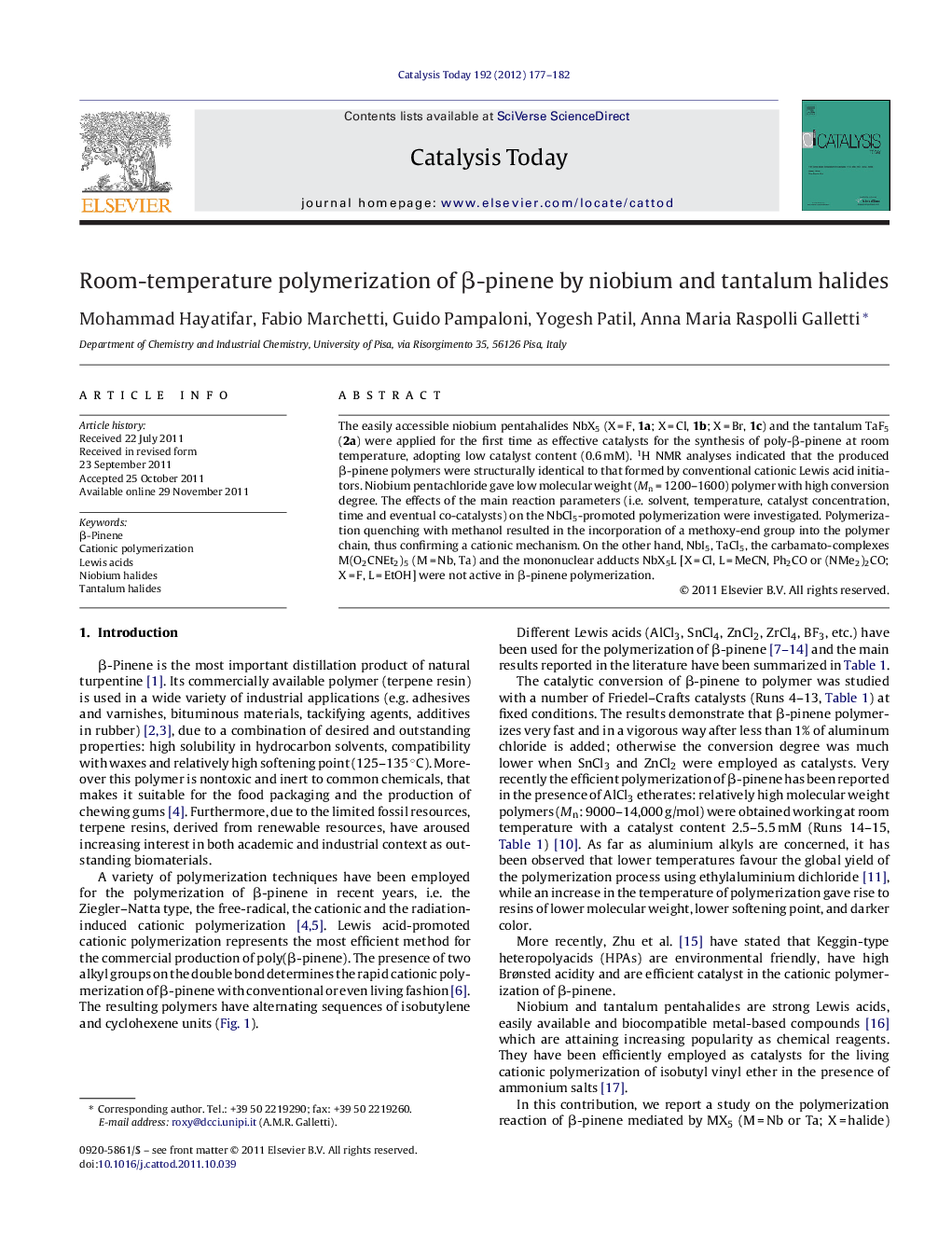| کد مقاله | کد نشریه | سال انتشار | مقاله انگلیسی | نسخه تمام متن |
|---|---|---|---|---|
| 55172 | 47042 | 2012 | 6 صفحه PDF | دانلود رایگان |

The easily accessible niobium pentahalides NbX5 (X = F, 1a; X = Cl, 1b; X = Br, 1c) and the tantalum TaF5 (2a) were applied for the first time as effective catalysts for the synthesis of poly-β-pinene at room temperature, adopting low catalyst content (0.6 mM). 1H NMR analyses indicated that the produced β-pinene polymers were structurally identical to that formed by conventional cationic Lewis acid initiators. Niobium pentachloride gave low molecular weight (Mn = 1200–1600) polymer with high conversion degree. The effects of the main reaction parameters (i.e. solvent, temperature, catalyst concentration, time and eventual co-catalysts) on the NbCl5-promoted polymerization were investigated. Polymerization quenching with methanol resulted in the incorporation of a methoxy-end group into the polymer chain, thus confirming a cationic mechanism. On the other hand, NbI5, TaCl5, the carbamato-complexes M(O2CNEt2)5 (M = Nb, Ta) and the mononuclear adducts NbX5L [X = Cl, L = MeCN, Ph2CO or (NMe2)2CO; X = F, L = EtOH] were not active in β-pinene polymerization.
Figure optionsDownload high-quality image (62 K)Download as PowerPoint slideHighlights
► Niobium halides are effective catalysts for cationic β-pinene polymerization.
► Good performances can be obtained at room temperature.
► Tantalum derivatives are less efficient than niobium ones.
Journal: Catalysis Today - Volume 192, Issue 1, 30 September 2012, Pages 177–182